Nov 04, 2025
Nov 04, 2025
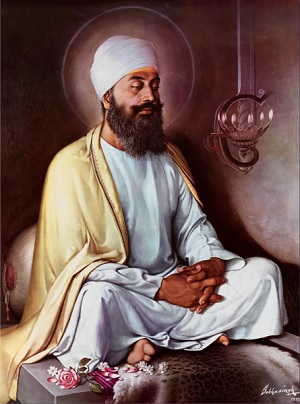 The concluding composition in Guru Granth Sahib comprising of 57 stanzas, is Salok Mahalla 9 by Guru Tegh Bahadur Ji. It embodies the soul’s journey from
The concluding composition in Guru Granth Sahib comprising of 57 stanzas, is Salok Mahalla 9 by Guru Tegh Bahadur Ji. It embodies the soul’s journey from
Janam akarath keen
![]()
which means that the life has been wasted,
to achieving the climax of:
“Raam naam ur mai gahio
![]()
Meaning: I have enshrined the Lord's Naam within my heart.
The result was:
“Sankat mithai daras tuhaaro hoi
![]()
Meaning: Eradicated all suffering and glorious vision of God was obtained.
Let us have an overview of this transformative journey through Guru Ji’s own words. The numbers in the parentheses are the stanza numbers of the saloks. Guru Ji starts with how we all are engaged in sensual pleasures, while the noose of death is ever tightening.
In the first stanza Guru Ji declares that the life was given to live in the remembrance, but it has been wasted in vain, without singing praises of God. Guru Ji wants us to adore our source (of life) just as fish adores (its life source) water (1). Guru Ji wants us to detach ourselves from vice, as that will lead us to be caught in the noose of Yama (2). Already the youth period is over and old age has overtaken the body, death is approaching (3). Despite this factual reality the realization on inevitability is not downing, and meditation has not taken hold (4). What are the reasons? Guru Ji answers that the mind is preoccupied with wealth, wife, and possessions, which will not accompany us (after death) (5).
Next, Guru Ji talks about the Redeemer- hope of the fallen as well as the dispeller of all fears (6). He abides within us, has given us human body and wealth (7), possessions, beautiful house, and other material comforts, still the mind does not remember Him (8). Guru Ji says through remembrance you could have attained salvation (9). But the span of remaining life is getting constantly dwindling (10). Remembrance is the destroyer of all fears and eradicates evil-mindedness (20).
Guru Ji reminds that the body is made of five elements, which upon death shall merge back into same source from where they originated (11). Guru Ji shares that the unique aspect of the human body is that God dwells within it, so He asks us to remember Him to cross the fearful worldly ocean (12). Describing the person who is one with God, Guru Ji describes the qualities of that person as:
Such a person possessing these qualities has attained salvation while alive (19). Guru Ji shares that the path to salvation is built on Naam. The benefit of Naam is that it is destroyer of all fears and eradicates evil mindedness (20). The Naam is to be recited with tongue and the seeker should listen to the sounds with his own ears (21). Guru Ji says the whole world is just a dream sequence, not real, and only reality in it is God (23) and rest is Maya (perishable and illusion of reality) with an expiry date. By knowing that life is a dream and then realizing that nothing can be taken with you eradicate pride from within (41). Guru Ji describes the Maya as:
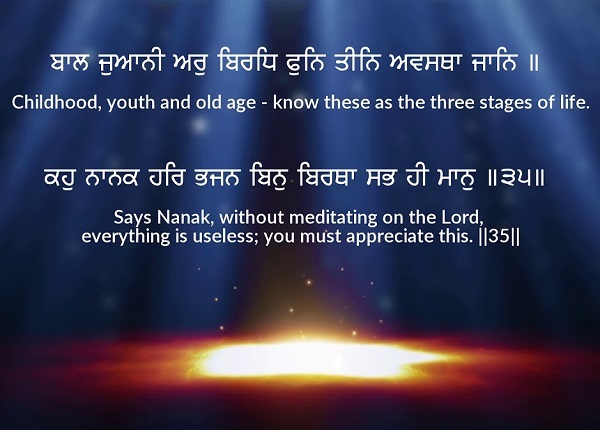
The mind steeply absorbed in God becomes liberated, becoming just like God (filled with virtues) with no difference (43). Guru Ji says consider those engaged in other pursuits besides remembrance of God as dogs and swine (44). But Guru Ji notices a positive trait of loyalty to their masters in dogs and asks us to develop similar loyalty with oneness of mind and heart (45). Guru Ji says rituals as doing pilgrimage, fasting or charity will not get you closer to the goal, instead they will fill you with pride. These rituals are futile, like the bath of the elephant (46). The prime of life has been dissipated in futile pursuits, with old age taking hold, complete with head trembling, gait staggering, poor eyesight, yet the elixir of life has not been tasted (47). Don’t hold hope in others, as none can help; instead cultivate God’s devotion (ardent love) which is everlasting (48). Guru Ji next discusses the impermanent nature of the world with these revelations:
We have taken a brief overview of 57 Saloks by Guru Tegh Bahadur Ji which form the epilogue of Guru Granth Sahib. There is a strong belief that these were written by Guru Tegh Bahadur Ji in Delhi before his martyrdom. The main themes that Guru Ji has shared with us are that life in this world is fragile and its sure culmination is in death. There is no mortal who can be a support in this world, so seek only true support of Naam of God. Guru says experience the merger with God while alive, ending the greatest fear of death and becoming free of cycles of rebirths.
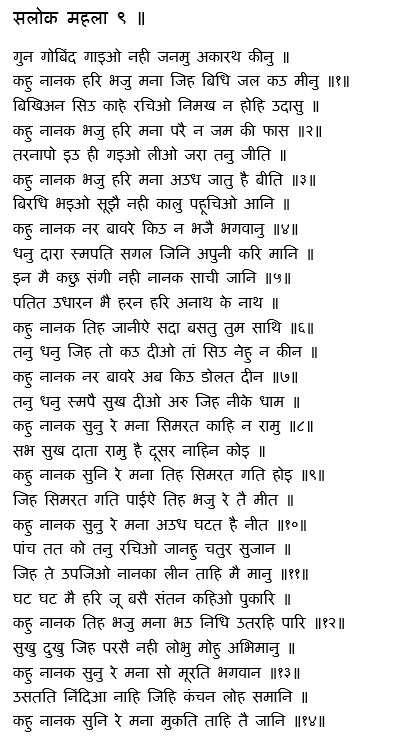
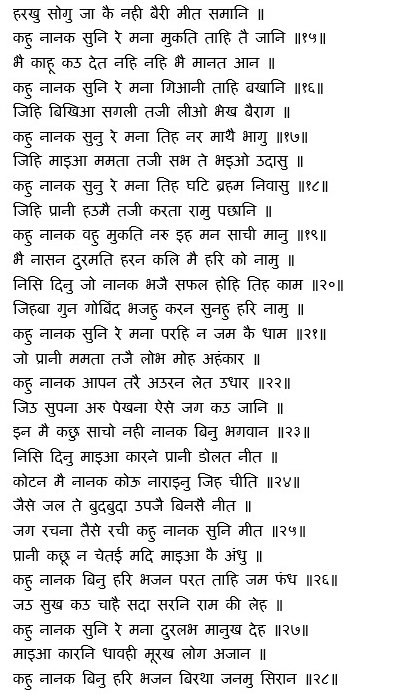
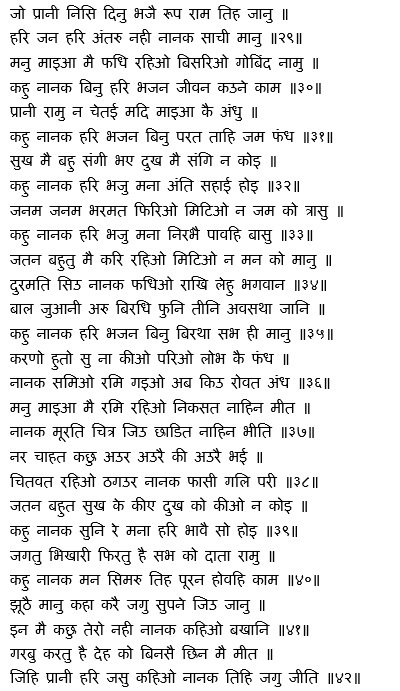
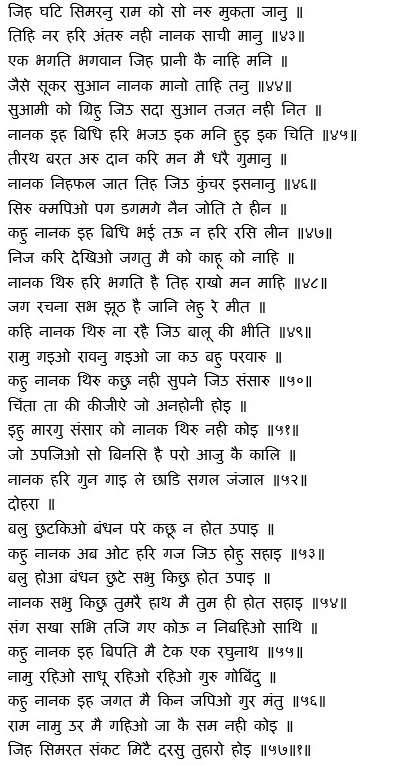
04-Sep-2021
More by : Bhupinder Singh